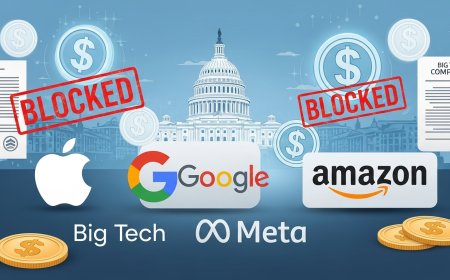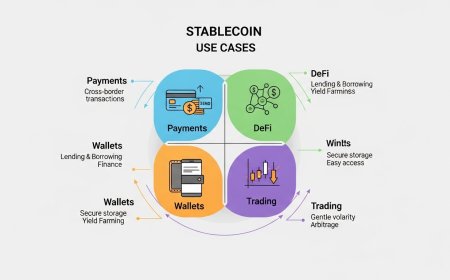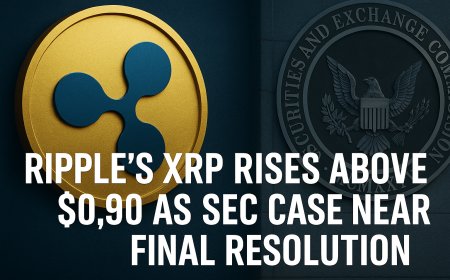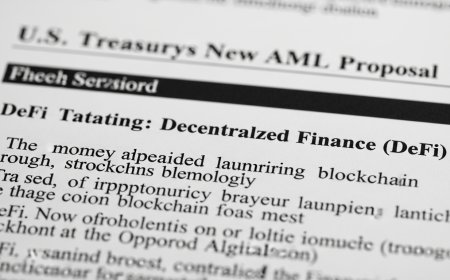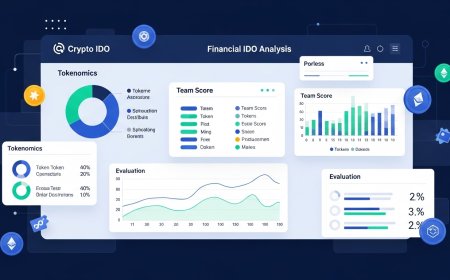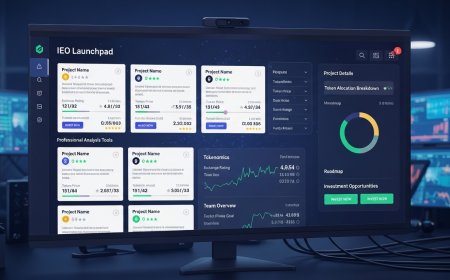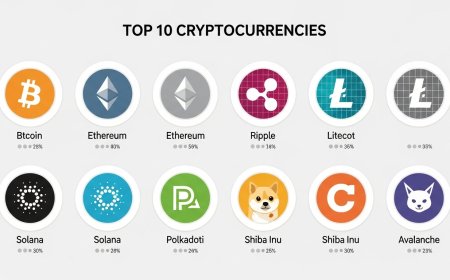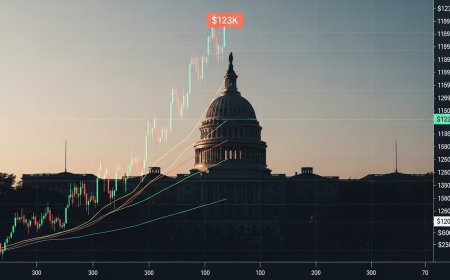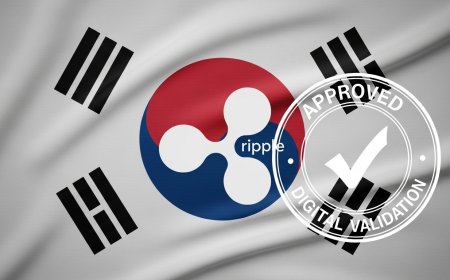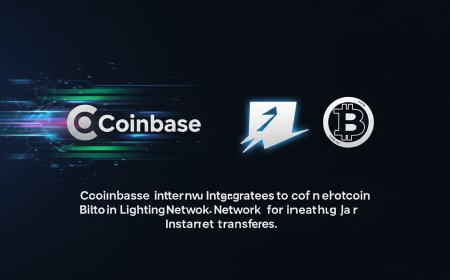Ripple Obtains Full FinTech License in South Korea
Ripple gets full operational clearance in South Korea, expanding its XRP-powered payments network in Asia.
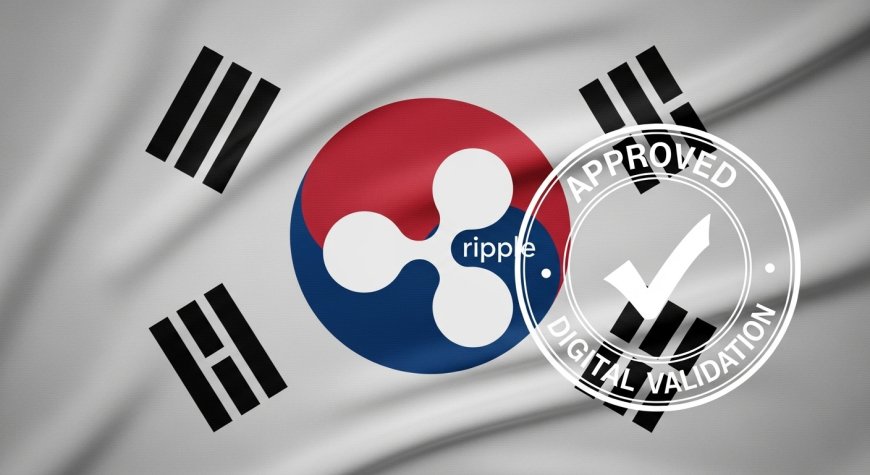
Ripple's Strategic Expansion in South Korea: Navigating the FinTech Regulatory Landscape
Ripple's expansion into South Korea represents a significant milestone in the company's Asia-Pacific strategy, marking its commitment to one of the world's most technologically advanced and financially sophisticated markets. While specific details about a full FinTech license are still emerging, Ripple's recent activities in South Korea demonstrate the company's systematic approach to establishing a robust regulatory and operational framework in this crucial market.
Ripple's Current South Korean Operations
Ripple has been steadily building its presence in South Korea through multiple strategic initiatives. The company launched custody solutions in October 2024, allowing banks and fintech companies to safeguard digital assets on behalf of their clients, demonstrating its commitment to expanding beyond traditional payment services into comprehensive financial infrastructure.
Ripple has established the XRPL Japan and Korea Fund as part of its commitment to 1 billion XRP aimed at providing financial, technical, and business support for developers. This fund represents a substantial investment in the regional blockchain ecosystem and signals Ripple's long-term commitment to fostering innovation in South Korea's financial technology sector.
The company has also forged strategic partnerships with local institutions. Ripple welcomed Yonsei University in South Korea to join its University Blockchain Research Initiative (UBRI) program, marking Ripple's 58th UBRI partnership. This academic collaboration demonstrates Ripple's commitment to building a foundation of blockchain expertise and research capability within South Korea's educational institutions.
Understanding South Korea's FinTech Regulatory Environment
South Korea's regulatory framework for financial technology companies is characterized by its comprehensive approach to digital asset regulation and financial innovation. The country has implemented a multi-tiered licensing system that distinguishes between different types of financial services and digital asset operations.
The South Korean regulatory environment is particularly stringent regarding cryptocurrency and blockchain-based financial services. The Financial Services Commission (FSC) and the Financial Supervisory Service (FSS) maintain rigorous oversight of digital asset service providers, requiring compliance with anti-money laundering (AML) regulations, know-your-customer (KYC) requirements, and capital adequacy standards.
South Korea's emergence as a hub for fintech advancements has been supported by progressive regulatory reforms, with Seoul showcasing cutting-edge AI technologies and regulatory innovations. The regulatory framework has evolved to accommodate legitimate blockchain and cryptocurrency businesses while maintaining strong consumer protection measures.
Scope and Significance of a Full FinTech License
A full FinTech license in South Korea would typically authorize Ripple to engage in a comprehensive range of financial services within the country. Such a license would generally permit:
Payment Processing Services: Authorization to facilitate domestic and international payment transactions, including cross-border remittances and institutional money transfers. This capability would be particularly valuable for Ripple's core business model of providing efficient cross-border payment solutions.
Digital Asset Services: Permission to offer cryptocurrency custody, trading, and related services to institutional and retail clients. This authorization would enable Ripple to provide comprehensive digital asset infrastructure services to South Korean financial institutions.
Financial Institution Partnerships: The ability to establish formal partnerships with banks, credit unions, and other financial institutions, allowing for deeper integration of Ripple's blockchain technology into the traditional financial system.
Custody and Safekeeping Services: Authorization to hold and safeguard digital assets on behalf of clients, a service that has become increasingly important as institutional adoption of cryptocurrencies grows.
Impact on Ripple's Business Operations
The acquisition of a full FinTech license would significantly enhance Ripple's operational capabilities in South Korea. The license would provide regulatory clarity and legitimacy that is essential for establishing partnerships with major financial institutions and government entities.
From a business development perspective, the license would position Ripple to compete more effectively with local and international competitors in the South Korean market. The regulatory approval would serve as a quality seal that could accelerate adoption among risk-averse institutional clients who require regulatory compliance for their technology partnerships.
The license would also enable Ripple to tap into South Korea's sophisticated financial technology ecosystem. The company plans to collaborate with leading companies in Japan and Korea to integrate the use of the XRP Ledger and explore enterprise use cases across a range of industries, indicating its intention to leverage local expertise and market knowledge.
Broader Implications for the FinTech Industry
Ripple's regulatory success in South Korea would have significant implications for the broader FinTech industry, particularly for blockchain and cryptocurrency companies seeking to establish operations in Asia. The achievement would demonstrate that comprehensive regulatory compliance is possible for international blockchain companies operating in highly regulated markets.
The development would likely encourage other global FinTech companies to pursue similar regulatory approvals in South Korea, potentially accelerating the growth of the country's digital financial services sector. This increased competition could drive innovation and improve service quality across the industry.
For the South Korean FinTech ecosystem, Ripple's presence would bring additional international expertise and capital investment. Ripple's move is part of its effort to expand its offerings beyond payments into other crypto-related sectors, which could create new opportunities for local partnerships and technology development.
Strategic Positioning in the Asia-Pacific Region
South Korea represents a crucial market for Ripple's Asia-Pacific expansion strategy. The country's advanced technological infrastructure, sophisticated financial system, and openness to innovation make it an ideal testing ground for new blockchain-based financial services.
The regulatory achievement would also strengthen Ripple's position in neighboring markets, as regulatory approval in South Korea could serve as a reference point for similar applications in other Asian countries. This regional strategy aligns with Ripple's broader goal of establishing a comprehensive network of regulated operations across major global financial markets.
Competitive Landscape and Market Dynamics
The South Korean FinTech market is characterized by intense competition among both domestic and international players. Local companies like Kakao Pay and Naver Pay have established strong positions in the digital payments space, while international companies like PayPal and various cryptocurrency exchanges compete for market share.
Ripple's regulatory compliance would provide a significant competitive advantage, particularly in serving institutional clients who require regulatory certainty. The company's focus on cross-border payments and institutional services differentiates it from consumer-focused competitors and positions it to capture a distinct market segment.
Future Outlook and Development Opportunities
The regulatory approval would open several development opportunities for Ripple in South Korea. The company could expand its product offerings to include more sophisticated financial services, develop partnerships with major Korean corporations, and potentially serve as a gateway for other international blockchain companies entering the market.
This new initiative highlights Ripple's dedication to growing its influence in the Asia-Pacific region, suggesting that the South Korean operations could serve as a model for expansion into other regional markets.
The success would also validate Ripple's approach to regulatory engagement, demonstrating that proactive compliance and collaboration with regulators can lead to successful market entry in highly regulated jurisdictions. This model could be replicated in other markets where Ripple seeks to establish operations.
Conclusion
Ripple's progress in South Korea represents a significant achievement in the company's global expansion strategy. The regulatory approval would provide the foundation for comprehensive financial services operations in one of Asia's most important markets, while demonstrating the viability of blockchain-based financial services within established regulatory frameworks.
The development would have far-reaching implications for both Ripple's business operations and the broader FinTech industry, potentially accelerating the adoption of blockchain technology in traditional financial services and encouraging further regulatory clarity in the cryptocurrency sector. As Ripple continues to build its presence in South Korea, the company's success could serve as a blueprint for other international FinTech companies seeking to establish operations in highly regulated markets.
What's Your Reaction?
 Like
0
Like
0
 Dislike
0
Dislike
0
 Love
0
Love
0
 Funny
0
Funny
0
 Angry
0
Angry
0
 Sad
0
Sad
0
 Wow
0
Wow
0












